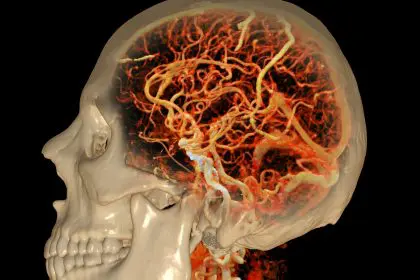Alzheimer’s disease, in the labyrinthine world of neuroscience where memories dance across synapses and consciousness remains an enigma, has driven researchers to uncover compelling pathways to protect our minds from the ravages of time. The battle against this condition, long considered an inevitable consequence of aging, has entered a new era of prevention and possibility.
The cognitive carnival
Deep within our brains, a daily circus of neural activity keeps our memories intact and our thoughts flowing. Recent research reveals that engaging in mentally stimulating activities creates a cognitive reserve, a kind of mental safety net that helps protect against memory decline. Complex puzzles, learning new languages, and mastering musical instruments all serve as training grounds for neural resilience.
The movement manifesto
Physical exercise emerges as a surprising hero in the fight against cognitive decline. When our bodies move, our brains flourish. Aerobic activities increase blood flow to the brain, stimulate the growth of new neural connections, and reduce inflammation. The prescription is simple yet powerful: thirty minutes of moderate exercise, five days a week, can dramatically reduce the risk of cognitive decline.
The sleep solution
During the mysterious realm of sleep, our brains perform essential maintenance, clearing away toxic proteins that accumulate during waking hours. Poor sleep quality correlates strongly with increased risk of Alzheimer’s disease. The brain’s nighttime cleaning crew, known as the glymphatic system, requires deep, consistent sleep to function effectively.
The mediterranean miracle
Diet emerges as a powerful weapon in the arsenal against Alzheimer’s disease. The Mediterranean diet, rich in olive oil, fresh vegetables, fish, and whole grains, shows remarkable protective effects against cognitive decline. These foods contain compounds that reduce inflammation and oxidative stress, two key factors in the development of Alzheimer’s disease.
The social sanctuary
Loneliness and social isolation accelerate cognitive decline, while strong social connections provide protection against Alzheimer’s. The brain thrives on human interaction, complex social relationships, and the emotional enrichment that comes from meaningful connections. Regular social engagement keeps neural pathways active and creates cognitive resilience.
The stress siege
Chronic stress emerges as a silent saboteur of brain health. Extended periods of stress increase inflammation and cortisol levels, potentially damaging the hippocampus, our brain’s memory center. Meditation, mindfulness practices, and stress management techniques offer powerful protection against these harmful effects.
The glucose guardian
Blood sugar control plays a crucial role in brain health. Diabetes and poor glucose regulation increase the risk of cognitive decline significantly. Maintaining stable blood sugar through diet, exercise, and proper medical management helps protect against the development of Alzheimer’s disease.
The vitamin victory
Specific nutrients emerge as key players in brain protection. Vitamin D, B12, and omega-3 fatty acids demonstrate particular promise in maintaining cognitive health. Regular blood testing and appropriate supplementation, under medical supervision, can ensure optimal levels of these crucial nutrients.
The educational edge
Formal education and lifelong learning create cognitive resilience. Each year of education reduces the risk of Alzheimer’s disease, suggesting that academic pursuit serves as a form of mental vaccination against cognitive decline. The brain’s plasticity responds positively to ongoing intellectual challenges.
The vascular vigilance
Heart health and brain health travel together on the same biological highway. Managing blood pressure, cholesterol, and cardiovascular health protects against cognitive decline. The brain’s vast network of blood vessels requires proper maintenance to deliver essential nutrients and remove waste products effectively.
The implementation imperative
Understanding these protective factors means little without practical application. Consider these strategic approaches to incorporating these principles into daily life:
Morning rituals become opportunities for brain health when they include short meditation sessions, physical exercise, and mentally stimulating activities. This triple threat approach sets a protective tone for the entire day.
Meal planning transforms into brain protection when focused on Mediterranean diet principles. Weekly shopping lists featuring colorful vegetables, lean proteins, and healthy fats create a foundation for cognitive health.
Social calendars serve as brain health schedules when they include regular meetups with friends, participation in community activities, and engagement in group learning experiences. These interactions provide both cognitive stimulation and emotional support.
The technological toolkit
Modern technology offers innovative ways to implement these protective strategies. Brain training apps, meditation guides, and social connection platforms provide accessible tools for maintaining cognitive health. However, technology should complement, not replace, real-world interactions and activities.
The timing truth
Early intervention proves crucial in the fight against Alzheimer’s disease. The protective measures described above show greatest efficacy when implemented early and maintained consistently throughout life. However, it’s never too late to begin incorporating these strategies.
The personalized path to prevent Alzheimer’s disease
Individual genetic factors, lifestyle circumstances, and medical conditions influence the effectiveness of various preventive strategies. Working with healthcare providers to develop personalized prevention plans increases the likelihood of success.
The battle against Alzheimer’s disease requires a comprehensive approach that encompasses physical, mental, and social well-being. By implementing these evidence-based strategies, individuals can significantly reduce their risk of cognitive decline. The brain’s remarkable plasticity means that every positive change, no matter how small, contributes to building cognitive resilience.
The future of Alzheimer’s prevention lies not in a single miracle cure but in the thoughtful implementation of these proven protective measures. Through consistent application of these strategies, we can work to preserve our cognitive function and maintain our mental acuity as we age. The power to protect our brains rests largely in our own hands, guided by the growing understanding of how lifestyle choices influence cognitive health.














